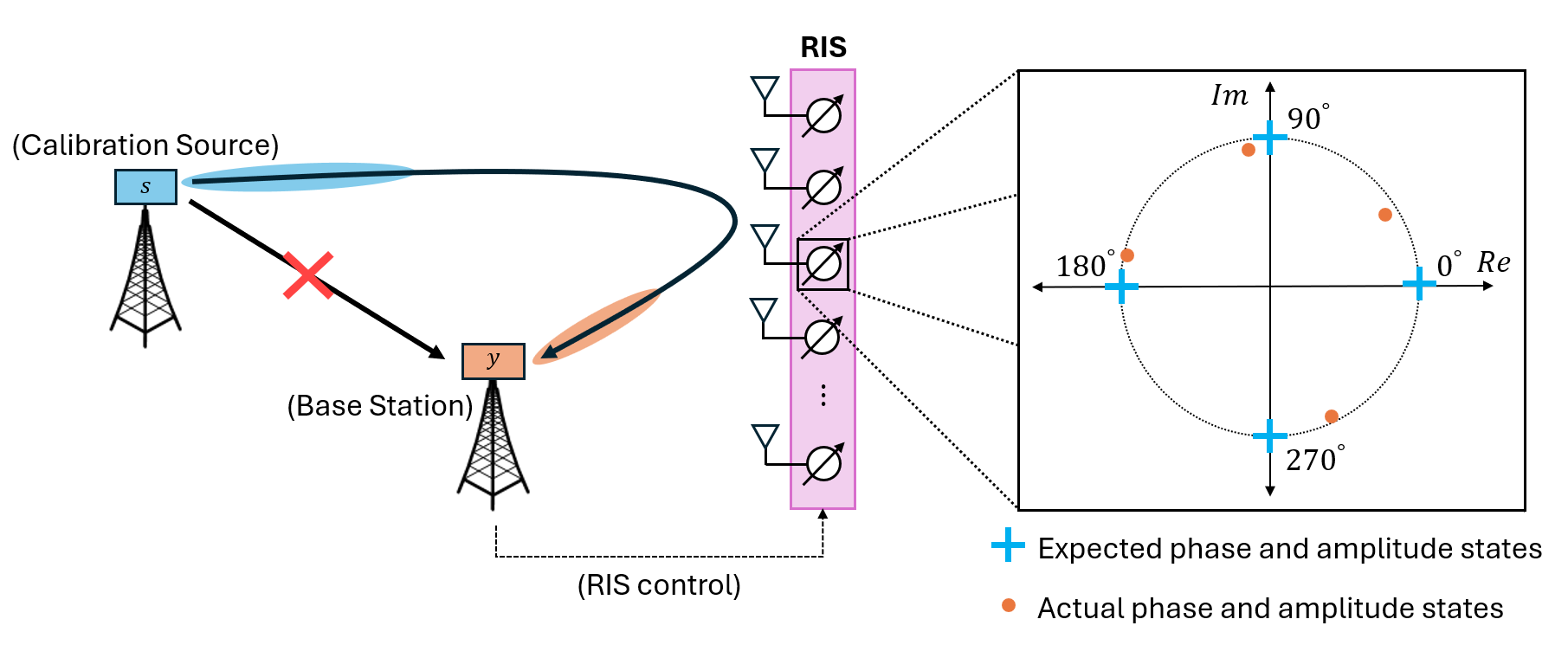
Cognitive Reconfigurable Embedded Systems Lab

Reconfigurable Intelligent Surface (RIS) Hardware Impairment Calibration

Reconfigurable Intelligent Surfaces (RIS) have been proposed as a potential mmw 6G cellular network technology. These devices are light-weight, low-cost, passive reflect arrays that alter the channel between a base station and a user. Each element on the RIS’s passive array has one bit of quantized amplitude of control and two to three bits of quantized phase shift control. By designing the weights of each RIS element, a base station can steer beams to increase gain on desired channels and reduce gain on others. In a mmw setting, forming beams in this way can overcome lots of the difficulties encountered when communicating through a sparse channel.
After deployment, a RIS’s hardware can be victim to hardware impairments caused by manufacturing defects, environmental conditions, or component degradation that create random phase and amplitude state deviation. The hardware on these devices cannot be improved once it’s deployed, but the array must be calibrated to ensure it performs well. The primary objective of this project is to develop a calibration method to improve a RIS’s resilience to hardware impairments. This resilience will be defined as increasing the RIS’s main lobe beamforming gain for a directional beamformer and will be compared to alternative calibration methods as well as not calibrating the RIS.
We will be focusing on the following research challenges:
1.) Creating a measurement system to characterize a RIS
– Estimate the RIS’s phase and amplitude impairments
– Estimate the combined channel from a transmitter through a RIS to a receiver
2.) Creating a beam correction algorithm for a RIS to generate quality directional beams given estimates from RIS characterization
Sponsors
- MIT Lincoln Laboratory
Staff
- Principal investigator: Danijela Cabric
- Students: Nicholas Borda